Agricultural Commodity Price Changes, Food Security, and Households’ Welfare in Tanzania
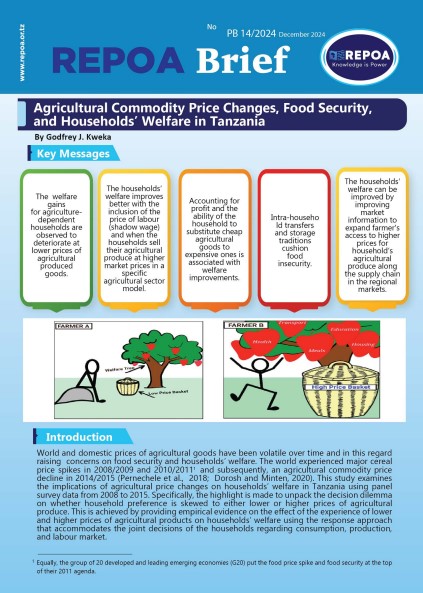
This study examines the implications of agricultural price changes on households’ welfare in Tanzania using panel survey data from 2008 to 2015. Specifically, the highlight is made to unpack the decision dilemma on whether household preference is skewed to either lower or higher prices of agricultural produce. This is achieved by providing empirical evidence on […]
Public Perceptions of COVID 19 Vaccine Efficacy among Urban Dwellers in Tanzania – A Case of Temeke Municipal
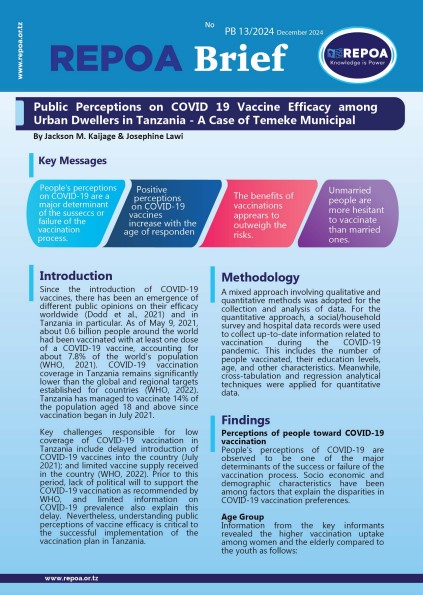
People’s perceptions of COVID-19 are a major determinant of the vaccination process’s success or failure. Socio economic and demographic characteristics have been among major motives for disparities in COVID-19 vaccination preferences. READ ON…!
Assessing Labour Conditions in Solid Waste Management: A Tanzanian Case Study
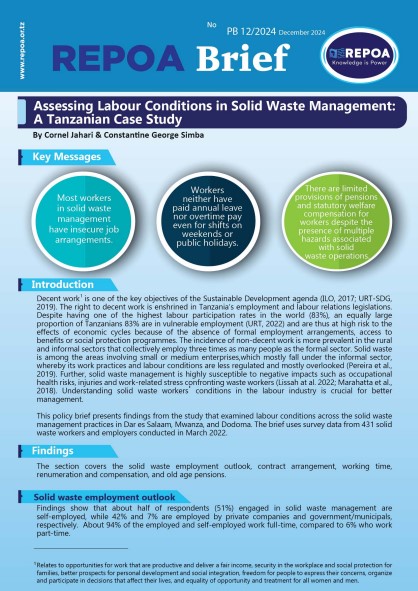
Solid waste workers are crucial to maintaining public health and environmental sustainability, especially in urban areas. Nevertheless, findings suggest that workers are exposed to several working conditions and challenges, including low salaries to cover household expenditures. They are hardly compensated whenever they work overtime, nor are they entitled to annual leave. Solid waste workers often […]
Diversifying Funding Sources for Sustainable Local Economic Development: Leveraging Public-Private Partnerships and Community
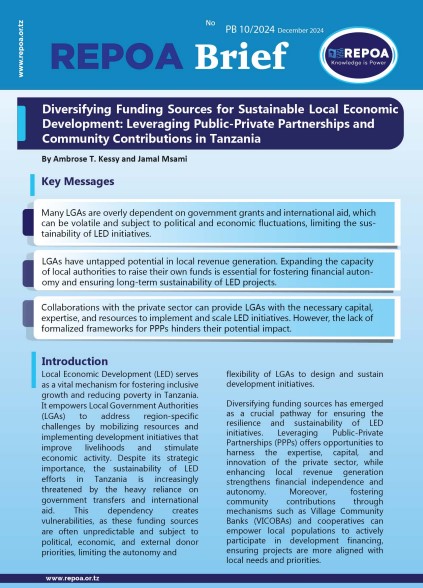
Diversifying funding sources for LED initiatives is essential for building more sustainable and resilient local economies in Tanzania. Overreliance on central government transfers and international aid leaves many LGAs vulnerable to funding delays and budget cuts. By expanding public-private partnerships, enhancing local revenue generation, and promoting community-driven contributions, LGAs can secure more stable and sustainable […]
Integrating Bottom-up and Top-down Approaches in Tanzania’s Climate Change Adaptation Planning: Exploring Their Impact on Adaptive Capacity in Adaptation Projects
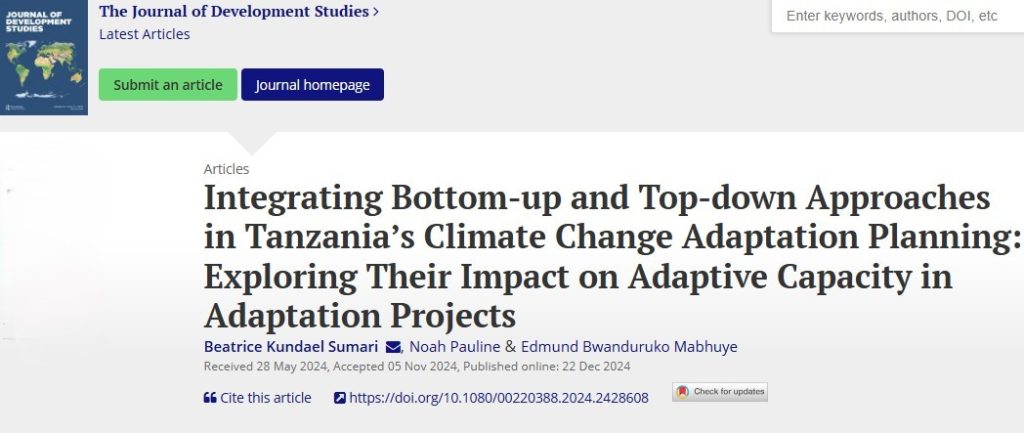
Findings here reveal significant disparities between projects executed under top-down and bottom-up approaches. Projects guided by top-down methodologies, typically led by central government agencies, often result in maladaptive outcomes due to their one-size-fits-all approach. In contrast, the bottom-up planning approach empowers communities with greater agency, leading to heightened adaptive capacity, though the approach still faces […]
Tanzanians say government must do ‘a lot more’ to limit climate change, but ordinary citizens should also do their part
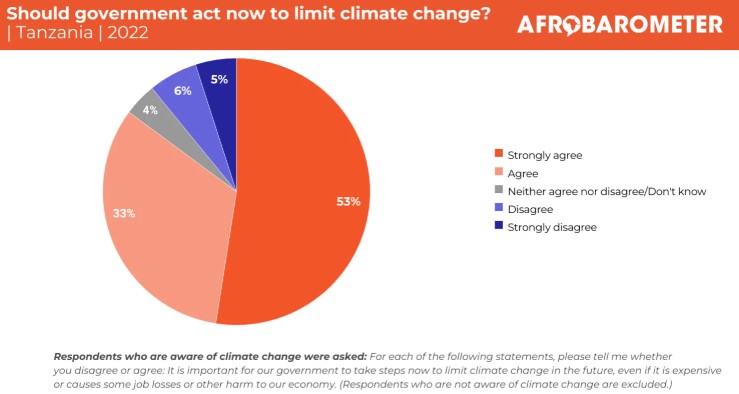
Most citizens who are aware of climate change say it is making life worse. READ MORE by clicking the Download.PDF button…!
Climate change mitigation and adaptation: Profile of biomass briquette producers in Tanzania
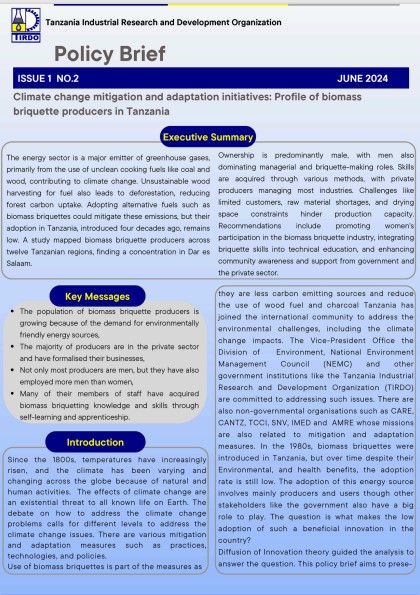
Many producers operate in the private formal sector. Despite being formalised, their staffing does not reflect the initiative to address gender inequality because the majority of staff are men. Majority of the staff members did not acquire biomass briquetting knowledge and skills through formal training: they did it through self-learning and apprenticeship. READ MORE by […]
Climate Change Adaptation and Mitigation: Factors influencing the adoption of biomass briquettes in Tanzania
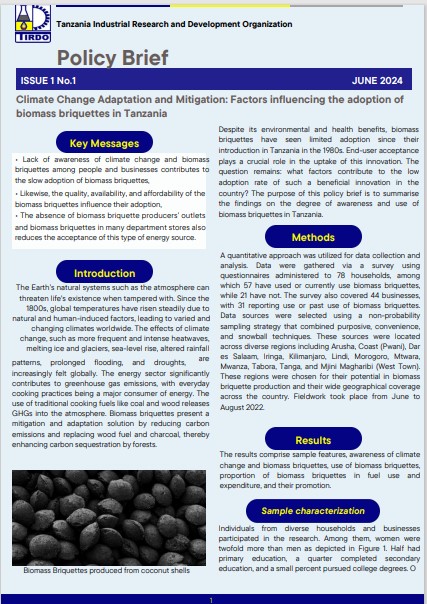
The biomass briquette adoption is not as high as expected despite their benefits because of the lack of climate change and biomass briquette awareness. Additionally, their quality, affordability, and availability vary, and can mainly be sourced from producers selling such products due to lack of distribution models. However, because of the design of this research, […]
Energy gaps: Slight, uneven progress still leaves many Africans without electricity
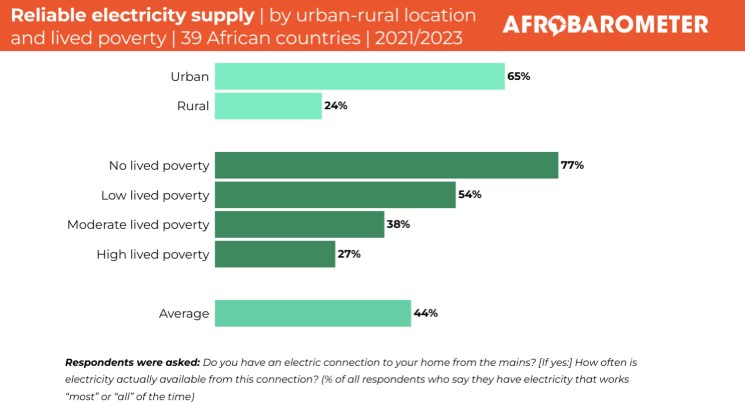
Fewer than half of households enjoy a supply of electricity that works “most” or “all” of the time. READ MORE…!
How to overcome rent seeking in Tanzania’s skills sector? Exploring feasible reforms through discrete choice experiments
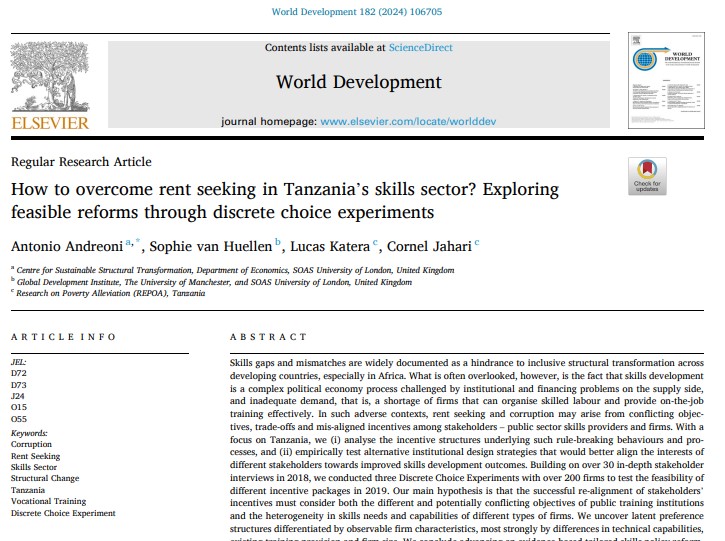
Skills gaps and mismatches are widely documented as a hindrance to inclusive structural transformation across developing countries, especially in Africa. What is often overlooked, however, is the fact that skills development is a complex political economy process challenged by institutional and financing problems on the supply side, and inadequate demand, that is, a shortage of […]
Factors influencing Online Citizen Engagement at the Local Level in Tanzania
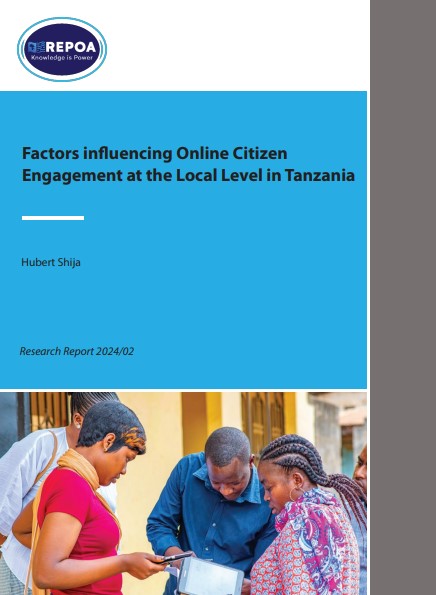
The adoption of e-participation adoption is found to be conditioned by the Information and Communication Technology (ICT) environment, government norms, ICT literacy and cost, and awareness among citizens and LLG leaders. The research implies that DOI power will increase when innovation testing is also included in the redesigning/ restructuring stage of the organisation’s innovation-decision process. […]
Democratisation in Tanzania: Re-examining citizens’ preferences for political party systems after 1992

The findings suggest an evolution of popular views on multipartism over time in contrast to reservations expressed to Justice Nyalali’s Commission in 1991. It is possible that, over time, many citizens have grown to prefer pluralism to a single party system because the speculated violence and societal division have not occurred. Also, they trust both […]
Motorcycle taxi riding and crimes in the urban settings of Dar es Salaam and Pwani Regions – Tanzania
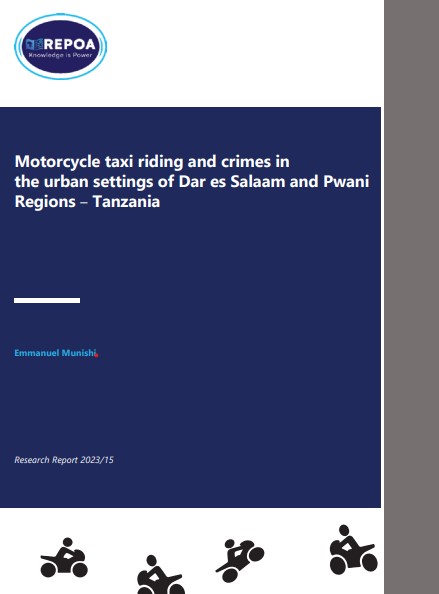
The study reveals differences in crimes between regions. Findings further reveal that, while different initiatives are used to cope with crimes by both riders and their customers, sometimes motorcycle riders have brutally assaulted people they suspect to be criminals, even without any proof, which escalates the problem. As for customers in Dar es Salaam, the […]
Technology Shocks and Performance of Commercial Banks in Tanzania
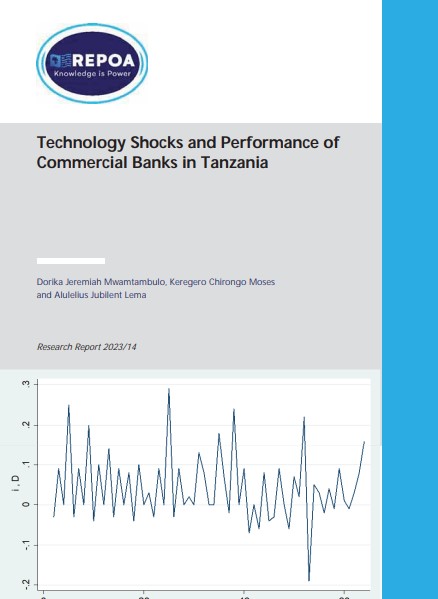
The findings proved the need for banks to formulate relevant policies and strategies for their technology adoption programmes. The goal is to ensure they are concurrent with the goal of profit maximisation and the maximisation of shareholders’ wealth. The study also takes the liberty of calling out for banks to support those investments pertaining to […]
Adaptive Water Governance and Climate Change Resilience among Rural Communities in Kilosa District, Tanzania
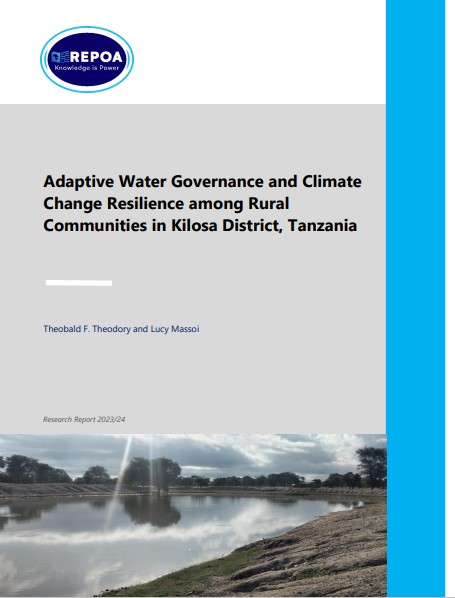
Results in this study indicate that climate change is not a new phenomenon in the study area. Rural communities have lived with it and observed extreme climatic events such as reduced precipitations, long drought seasons and shifting of seasons, to mention a few. Rural communities in Parakuyo and Mabwerebwere Wards enhance their climate change resilience […]
Closing the Gender Performance Gap at Enterprise Level: Empirical Evidence from Tanzania
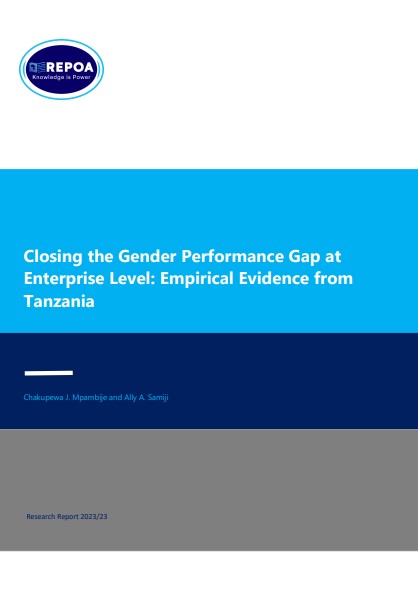
The findings of this study suggest that performance of women’s enterprises in Tanzania is determined by revenue, access to credit, levels of education, cost of labour and registration with the Tanzania Revenue Authority (TRA). Therefore, to close the gender performance gap, the government should increase access to credit, reduce cost of raw materials, provide education, […]